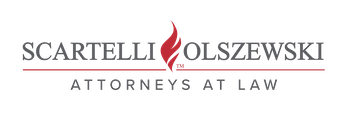Free Consultation

How Can Truck Crashes Be Prevented?
Truck crashes happen in Pennsylvania more often than you would think. As the trucking industry has been continuously on the rise and has no signs of slowing down, crashes happen. Here are 5 must-know facts about truck crashes:
- 52% increase in truck crashes in only 10 years
- 74% of all fatal passenger vehicle cases include a large truck
- Tire defects account for around 30% (the most common cause) of all truck-related crashes
- Most of these crashes occur during the day – between 12:00 PM and 3 PM, up to 19% over the past decade
- 68% of all truck fatalities are passenger vehicle occupants
Approximately 130,000 people suffer from injuries that involve truck-related crashes. Truck crash injuries are often more severe due to their enormous size and weight. These injuries may include broken bones, back and neck injuries, head trauma, internal bleeding, spinal cord damage, and whiplash injuries. All of these injuries require intensive care, which could be costly for the victim.
Ways To Avoid Truck Crashes:
- Maintain visibility
- Allow distance between your car and the truck
- Anticipate turns, especially wide or right hand turns
- Use your turn signals
- Always watch your speed and never “cut off” a truck
- Be patient and share the road
Trucking Laws & Regulations
Federal laws and regulations help govern the trucking industry. These laws hold certain standards for trucking companies, owners, and drivers that help determine who is responsible for a trucking crash. Agencies that typically regulate the trucking industry include the U.S. Department of Transportation (DOT), as well as the Federal Motor Carrier Safety Administration (FMCSA). Each state has a DOT that sets their own trucking regulations as well.
In Pennsylvania, trucking laws also include requirements for truck owners, trucking companies, loading companies, and vehicle manufacturers:
Truck Owner
The truck owner may be liable for a crash if the truck was unfit for duty. It is the responsibility of the truck owner to make sure their trucks are safe for travel before leasing them out to another individual or trucking company.
Trucking Company
In many instances, a trucking company may lease their trucks and hire drivers as independent contractors from the trucks’ actual owner. However, since the company’s placard is on the truck, the trucking company could be liable in a crash. Like the truck owner, the trucking company should make sure the trucks they lease have been properly maintained and are fit to travel.
In regard to hiring independent contractors to drive their trucks, a trucking company is responsible for vetting the drivers they hire. They are also responsible for keeping unqualified or suspended drivers from operating commercial vehicles.
Loading Company
If a crash occurs because the truck was improperly loaded, then the loading company could be held liable for damages. An improperly loaded or unbalanced truck could have mobility and control issues.
Also, in order to travel with an overweight truck, the trucking company must hold a special permit from PennDOT. If the truck is overweight and the trucking company does not have a special permit, then the company or the loading company could be at fault for an accident.
Truck or Tire Manufacturer
If defective truck parts or faulty tires caused a crash or increased the severity of a crash,, the truck or tire manufacturer could be held liable for damages.
It is very important to drive with caution, but crashes do happen. While these tips and information cannot guarantee you will not be involved in a crash, they can reduce your risks significantly. If you or someone you know are injured in a truck-related crash, contact our team of attorneys at Scartelli Olszewski, P.C.
Sources:
Avoid Truck Accidents With These 4 Rules
Rachel D. Olszewski, an attorney at Scartelli Olszewski, P.C., is a dedicated advocate for clients who have suffered unjust harm. Following the legacy of her esteemed family members, Rachel specializes in personal injury, medical malpractice, and criminal defense. She is actively involved in professional associations and serves on the board of the Luzerne County Bar Association Charitable Foundation. Rachel is admitted to practice in Pennsylvania state courts and the U.S. District Court for the Middle District of Pennsylvania.
Linked In - https://www.linkedin.com/in/olszewskirachel/

